Search the Special Collections and Archives Portal
Search Results

Al Lermusioux interview, March 9, 1978: transcript
Date
Archival Collection
Description
On March 9, 1978, Shirley Dianne Long interviewed Al Lermusiaux (b. 1926 in Corrales, New Mexico) about his work in construction in the Las Vegas Valley. Lermusiaux begins by talking about his move to Las Vegas, his family and what brought him to the city. He shares many anecdotes about the construction of different iconic buildings in Las Vegas, the inner workings of the business, payments to employees and the changes in technology. Lermusiaux, in particular, talks of the telephone system in the fifties and the changes in structures and their regulations. During his interview, Lermusiaux lays out an image of old Las Vegas and Henderson, giving detailed descriptions of the layout of the city, the projects he worked on and the effects of the weather on building structures in Las Vegas.
Text
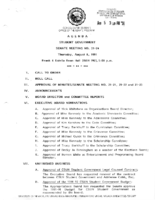
Meeting minutes for Consolidated Student Senate University of Nevada, Las Vegas, August 8, 1991
Date
Archival Collection
Description
Text
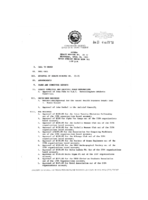
Meeting minutes for Consolidated Student Senate University of Nevada, Las Vegas, April 28, 1993
Date
Archival Collection
Description
Text
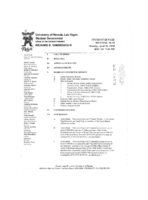
Meeting minutes for Consolidated Student Senate University of Nevada, Las Vegas, April 26, 1999
Date
Archival Collection
Description
Text

Meeting minutes for Consolidated Student Senate University of Nevada, Las Vegas, July 12, 1990
Date
Archival Collection
Description
Text
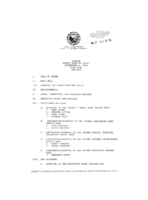
Meeting minutes for Consolidated Student Senate University of Nevada, Las Vegas, September 6, 1990
Date
Archival Collection
Description
Text
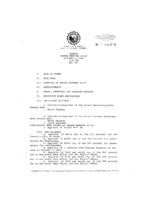
Meeting minutes for Consolidated Student Senate University of Nevada, Las Vegas, October 4, 1990
Date
Archival Collection
Description
Text

Meeting minutes for Consolidated Student Senate University of Nevada, Las Vegas, August 14, 1995
Date
Archival Collection
Description
Text

Interview with Katie McWilliam, July 9, 2004
Date
Archival Collection
Description
Access note: Audio temporarily sealed
Text

Interview with Raymond Chester Harbert, October 20, 2005
Date
Archival Collection
Description
Text
